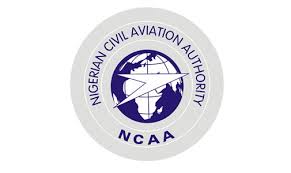 THE President of the Nigerian Aviation Safety Initiative (NASI), Captain Dung Pam, has urged the Federal Government to initiate policies to facilitate the emergence of strong indigenous carriers.
THE President of the Nigerian Aviation Safety Initiative (NASI), Captain Dung Pam, has urged the Federal Government to initiate policies to facilitate the emergence of strong indigenous carriers.
He also canvassed initiatives that would encourage mergers, interline agreements, code shares and acquisitions.
In an interview, Pam said without such initiatives, local carriers would remain weak.
The government, he said should review bilateral agreements, which grant multiple designation and entry points to foreign carriers.
Pam said: “The duty and the challenge for the Federal Ministry of Aviation (FMA) is to reverse the current situation by creating policies and strategies that will facilitate the emergence of strong, organised and viable local airlines.
“For close to a decade, NASI and other proactive organisations/individuals have advocated for strategic partnerships such as interlining, code-shares, commercial agreements, mergers and acquisitions in the industry as a panacea for the declining fortunes of airlines.
Mega-carriers in Europe and America are merging to further extract cost synergies and take advantage of economies of scale.
“Yet, the Federal Ministry of Aviation is superintending over the collapse of its aviation sector. Our major commercial scheduled operators are on the verge of possible insolvency despite multiple government monetary interventions.
“The ministry and the regulator should wake up to their responsibilities and facilitate the evolution of existing under performing airlines into some viable and profitable airlines capable of providing the world class service Nigerians deserve.
“These few restructured airlines should then be engaged in a transparent process of bidding to become Nigeria’s flag carriers.”
He said government should ensure that review of bilateral air agreements should adhere to the principles of reciprocity, fairness and mutual benefit.
Regrettably , government he said, has not done enough to look at the agreements from long term economic and security implications. Pam further said: “So far, the administering of Nigeria’s Bilateral Air Service Agreement (BASA) has been a matter of serious concern considering it is supposedly based on the principle of “reciprocity”; fair exchange for mutual benefit.
“It has neither been fair, nor particularly beneficial to the generality of Nigerians. The Federal Ministry of Aviation (FMA) has consistently failed to understand the wider implication of this myopia. If they are bereft of the requisite information, wider stakeholder engagement and consultation will have revealed deeper reasoning.
“Therefore, it is irresponsible and dereliction of duty for the Federal Ministry of Aviation to offer multiple designations and entry points to foreign international carriers without seriously considering the medium and long term economic and security implications.
“The process is devoid of transparency and reeks of high-handed personal interest as opposed to national interest. It virtually outsources the operation our aviation industry to foreign entities while relegating Nigerian carriers to the position of pawns in this internal chess game. We are the “mark” and the “market” in this intriguing game of monopoly.
“The reason why Nigerian airlines are unable to commensurately reciprocate our bilateral air service agreement (BASA) is because they are weak, disorganised and fragmented.”
He also lamented that 15 years after Nigeria signed the Open Skies agreement with the United States it is unable to take advantage of the air pact.
Pam said: “Fifteen years after signing a provisional open skies agreement with the USA, we are still unable to take full advantage of it.”
TheNation
END

Be the first to comment